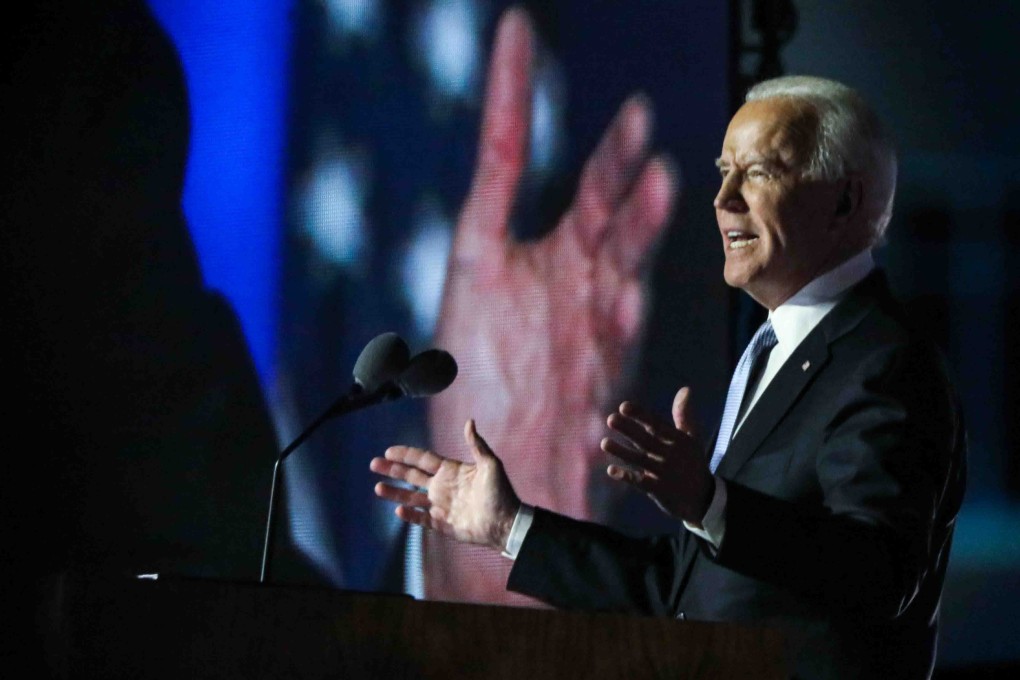Advertisement
Editorial | Biden should take a more pragmatic approach in ties with China and the world
- The incoming US president is eager to restore his country’s international standing and, hopefully, will work with other governments to rebuild broken partnerships and networks
Reading Time:3 minutes
Why you can trust SCMP

The flurry of congratulatory messages from around the globe for Joe Biden’s victory over Donald Trump in the American presidential election were filled with the between-the-lines hope that there could now be more certainty in relations with the United States. But the silence from President Xi Jinping – at least thus far – was also noticeable, China having borne the brunt of the outgoing administration’s disruptive policies. There is good reason for reticence; anti-Chinese sentiment has bipartisan support among American lawmakers and there is a possibility that the new president could take an even tougher stance. As a seasoned politician, though, Biden knows the importance of diplomacy and cooperation and on that score, there is at least the likelihood that ties between the two most important economies will return to a more predictable and even-keeled course.
Biden will have an uphill task undoing the damage Trump wrought on the US’ relations with allies and rivals alike. The outgoing president’s “America first” policy paid little heed to traditional alliances, multilateral organisations that Washington had been instrumental in creating and trade agreements. But when the new administration takes over on January 20, it will have pressing domestic issues to first attend to, most significantly putting in place an effective strategy to tackle the mismanaged Covid-19 crisis and the economic fallout and joblessness that have resulted. Existing deals, tariffs and sanctions are therefore likely to remain in place until new approaches are formulated.
For Beijing, eager for Washington to better manage relations, that is bound to be frustrating. Reviving trade talks, stalled at a phase one deal, is the obvious place to begin that process. Biden, as vice-president under Trump’s predecessor, Barack Obama, and as a long-standing member of the US Senate Foreign Relations Committee, has vast knowledge of China. While as a Democrat, human rights and democracy are bound to be sticking points in ties, he is also well aware that the foundation of relations is trade and in improving those links lies the key to rebuilding trust and understanding.
Advertisement
Rebuilding relationships
The same is true with fractured relations with European allies. Biden has pledged that on his first day in office he will begin the process of the US rejoining the Paris climate change accord; given his support of multilateralism, it seems certain Washington will also be rejoining the World Health Organization and putting its energies back into shoring up the World Trade Organization and North Atlantic Treaty Organization. But for Beijing, there is also a downside if the Biden administration forges stronger ties with its traditional allies, including a return to the Trans-Pacific Partnership, the free-trade agreement with the Asia-Pacific that Trump withdrew from.
Advertisement
Such deals take time and effort and given Biden’s domestic distractions, he is expected to opt for a cabinet with past experience in government. Names being touted to replace Trump’s hawkish secretary of state, Mike Pompeo, include the experienced foreign policy hands Susan Rice and Antony Blinken, who are both likely to take tough positions on China. Boosting ties with Asian allies to keep Beijing in check will be a priority. But there has to be a welcome shift in approach, Biden seeing China as a competitor, not a threat, as Trump did.
Advertisement
Select Voice
Choose your listening speed
Get through articles 2x faster
1.25x
250 WPM
Slow
Average
Fast
1.25x
